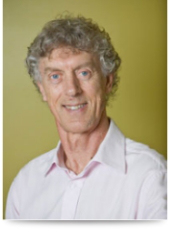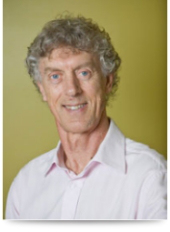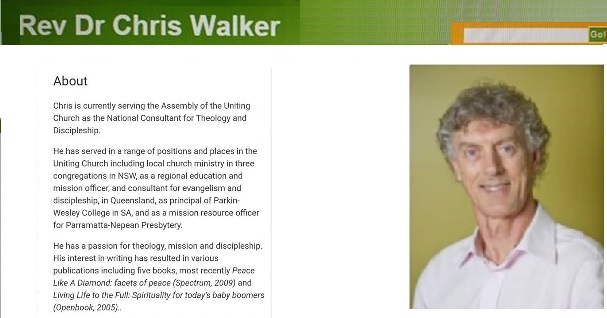with Rev Dr Chris Walker

Spheres of Influence
We all have interests, concerns and some influence in different aspects of our lives. Many people are passionate football team followers, we are concerned about what is happening in Ukraine and the Middle East, we can have some influence in our family life, our work, our church and other areas. Let me suggest that these can be referred to as different spheres: of interest, of concern and of influence. Let me explain further.
Our sphere of interest has to do with those interests we have which attract our attention to which we give time and thought. Those interested in football, whether rugby union, rugby league, Australian rules football or soccer, tend to be very interested in following the fortunes of their team. They are pleased when the team wins and are disappointed when it loses. They want their team to do well, to get to the finals and hopefully one day win the whole competition. If they do it is a matter of great celebration. For myself as a former surfboard rider, I follow the World Surf League surfboard contests held around the world. It is interesting to see the different surf locations and to see the surfers perform, especially the Australians. While some people might be supporters of their sporting heroes to the point of some personal contact, for the most part the sphere of interest is a matter of observation. We watch, we cheer, we commiserate. We read about what happened or what is coming up. We look to see how the team or person is doing in relation to others. Realistically, we have no influence. The interest is personal. It is a passion we have perhaps based on playing the sport ourselves when younger. What I have said in relation to sport applies to an interest in music or art. We watch the professionals but have no influence. We simply enjoy or admire.
Next is the sphere of concern. It is what we are dismayed about both near and far. Especially distant concerns such as the wars in Ukraine and the Middle East, distress us as people of compassion. We care about what is happening to the people in those places. We feel for those suffering – the death and injuries to loved ones, the forced displacement of people, the destruction of homes and infrastructure. We hope for cease fires and peace talks. We might be doubtful as to how they are proceeding but wish they would lead to an end to the war and unnecessary suffering. However, our concern from afar has no influence. We do not have an effect on the talks or outcomes.
If the concern is closer to us, we might have some influence but not much. We can be worried about people going through health issues, we can be distressed by acts of violence, we can know about the problem of addiction, we can be aware of financial stresses people face. Our personal capacity to do anything is limited.
Our sphere of influence is where we can make some difference. All of us do have some possibilities for influencing people and situations. Sometimes an action we take can in fact have a significant impact on someone else. It is important not to feel we have no influence and adopt a completely observer or cynical approach to what goes on in the world. Identifying where we can have an influence helps. As well as responding ourselves, it helps to join with others with similar concerns as jointly we can make more of a difference. This is especially the case with big issues. I am concerned about climate change and peace for example. Joining the groups Australian Religious Response to Climate Change, Uniting Eco Group and the Raising Peace network has enabled me to be involved in trying to influence those issues in ways that go far beyond my individual action.
As mentioned earlier, we can have some influence in our family life, our work, our church and other areas. How we conduct ourselves is important. Do we demonstrate love and thoughtfulness in relation to our family? Do we show integrity and care in our work situation? What gifts and talents do we use for the benefit of our church community and local community? As we do so we do have an influence.
The values and approaches that guide me are informed by my Christian faith. I look especially to Jesus. He was a first century Jew from a small town yet had an impact in his nation in his own lifetime and has influenced millions of people around the world since his death and resurrection. The people I admire most are those who looked to him and sought to live the way he taught and demonstrated. Most recently was Pope Francis who lived simply, was concerned about the least in society, desired peace, and wrote an important statement on caring for the environment.
Jesus proclaimed the coming kingdom of God in which God’s rule of love, justice and peace prevail. In the prayer Jesus taught his disciples, we are to pray and work towards the reign of God. So, we say, “Your kingdom come, your will be done, on earth as in heaven.” Jesus’ two commands were that we love God wholeheartedly and love our neighbours as ourselves (Matthew 2:37-40). In the parable of the good Samaritan, he taught that our neighbour is not limited to people like us but is anyone in need (Luke 10:25-37). In John’s gospel, at the last supper Jesus had with his disciples, he said: “I give you a new commandment, that you love one another. Just as I have loved you, you also should love one another. By this everyone will know that you are my disciples” (John 13:34-35). Jesus modelled what love involved. This included servant leadership, concern for the least, challenging those who took advantage of their position and power, and nonviolent action. As we do likewise, which includes our giving and our prayers. we do have influence.

Chris Walker
http://revdrchriswalker.wordpress.com/
Chris is currently serving the Assembly of the Uniting Church as the National Consultant for Theology and Discipleship.
He has served in a range of positions and places in the Uniting Church including local church ministry in three congregations in NSW, as a regional education and mission officer, and consultant for evangelism and discipleship, in Queensland, as principal of Parkin-Wesley College in SA, and as a mission resource officer for Parramatta-Nepean Presbytery.
He has a passion for theology, mission and discipleship. His interest in writing has resulted in various publications including five books, most recently Peace Like A Diamond: facets of peace (Spectrum, 2009) and Living Life to the Full: Spirituality for today’s baby boomers (Openbook, 2005
영향력 영역
우리 모두는 삶의 다양한 측면에서 관심사, 걱정, 그리고 어느 정도의 영향력을 가지고 있습니다. 많은 사람들이 열렬한 축구팀 팬이며, 우크라이나와 중동에서 무슨 일이 일어나고 있는지 걱정하고, 가정생활, 직장, 교회 등 다양한 분야에 영향을 미칠 수 있습니다. 이러한 영역은 관심 영역, 우려 영역, 그리고 영향력 영역으로 구분할 수 있습니다. 더 자세히 설명해 보겠습니다.
우리의 관심 영역은 우리의 관심을 끌고 시간과 생각을 쏟게 하는 관심사와 관련이 있습니다. 럭비 유니언, 럭비 리그, 호주식 풋볼, 축구 등 축구에 관심 있는 사람들은 자신이 응원하는 팀의 성적을 지켜보는 데 매우 관심이 많습니다. 팀이 이기면 기뻐하고, 지면 실망합니다. 그들은 팀이 좋은 성적을 거두고 결승에 진출하여 언젠가는 전 대회에서 우승하기를 바랍니다. 만약 그렇게 된다면 그것은 매우 큰 축하가 될 것입니다. 저는 전직 서프보드 라이더로서 전 세계에서 열리는 월드 서프 리그 서프보드 대회를 시청합니다. 다양한 서핑 장소와 서퍼들의 활약, 특히 호주 선수들의 활약을 보는 것은 흥미롭습니다. 어떤 사람들은 스포츠 영웅을 개인적으로 만날 정도로 응원하기도 하지만, 대부분의 경우 관심의 영역은 관찰의 영역입니다. 우리는 지켜보고, 응원하고, 위로합니다. 무슨 일이 있었는지, 앞으로 무슨 일이 일어날지 읽습니다. 팀이나 개인이 다른 사람들과 어떻게 지내는지 살펴봅니다. 하지만 현실적으로 우리는 아무런 영향력도 행사할 수 없습니다. 관심은 개인적인 것입니다. 어쩌면 어렸을 때 직접 스포츠를 즐겼던 경험에서 비롯된 열정일지도 모릅니다. 제가 스포츠에 대해 이야기했던 내용은 음악이나 예술에 대한 관심에도 적용됩니다. 우리는 프로 선수들을 보지만 영향력을 행사할 수는 없습니다. 그저 즐기거나 존경할 뿐입니다.
다음은 관심의 영역입니다. 가깝든 멀든 우리가 실망하는 것입니다. 특히 우크라이나와 중동에서 벌어지는 전쟁과 같은 먼 곳의 문제는 연민을 가진 사람들로서 우리를 괴롭힙니다. 우리는 그 지역 사람들에게 무슨 일이 일어나고 있는지 걱정합니다. 사랑하는 사람의 죽음과 부상, 강제 이주, 주택과 기반 시설의 파괴 등 고통받는 사람들에게 깊은 애도를 표합니다. 우리는 휴전과 평화 회담을 희망합니다. 회담이 어떻게 진행될지 의구심이 들 수도 있지만, 그 회담이 전쟁과 불필요한 고통을 종식시키기를 바랍니다. 하지만 멀리서 느끼는 우리의 걱정은 아무런 영향을 미치지 못합니다. 우리는 회담이나 결과에 아무런 영향을 미치지 못합니다.
우리 가까이에 있는 걱정이라면 어느 정도 영향을 미칠 수는 있겠지만, 큰 영향력은 없습니다. 우리는 건강 문제를 겪는 사람들을 걱정할 수도 있고, 폭력 행위로 고통받을 수도 있으며, 중독 문제에 대해 알 수도 있고, 사람들이 겪는 재정적 어려움을 알 수도 있습니다. 하지만 우리가 할 수 있는 개인적인 능력은 제한적입니다.
우리의 영향력 범위는 우리가 변화를 만들어낼 수 있는 영역입니다. 우리 모두는 사람과 상황에 영향을 미칠 수 있는 가능성을 가지고 있습니다. 때로는 우리가 취하는 행동이 다른 사람에게 중대한 영향을 미칠 수도 있습니다. 우리에게 영향력이 없다고 생각하지 않고 세상에서 일어나는 일에 대해 완전히 관찰자적이거나 냉소적인 접근 방식을 취하는 것이 중요합니다. 우리가 영향을 미칠 수 있는 부분을 파악하는 것이 도움이 됩니다. 스스로 대응하는 것 외에도, 비슷한 걱정을 하는 사람들과 함께 힘을 합치면 더 큰 변화를 만들어낼 수 있습니다. 특히 중요한 문제들에 대해서는 더욱 그렇습니다. 저는 기후 변화와 평화에 대해 우려하고 있습니다. 호주 종교 기후 변화 대응 그룹(Australian Religious Response to Climate Change), 유니팅 에코 그룹(Uniting Eco Group), 그리고 레이징 피스 네트워크(Raising Peace network)에 참여하면서 개인적인 행동을 넘어 이러한 문제들에 영향을 미치기 위해 노력할 수 있었습니다.
앞서 언급했듯이, 우리는 가정생활, 직장, 교회, 그리고 다른 여러 영역에서 어느 정도 영향력을 행사할 수 있습니다. 우리가 어떻게 행동하는지는 중요합니다. 우리는 가족에게 사랑과 사려 깊음을 보여줍니까? 직장에서 정직함과 배려를 보입니까? 우리는 교회 공동체와 지역 사회의 유익을 위해 어떤 은사와 재능을 사용합니까? 그렇게 할 때 우리는 영향력을 행사할 수 있습니다.
저를 인도하는 가치관과 접근 방식은 제 기독교 신앙에서 비롯됩니다. 저는 특히 예수님을 바라봅니다. 그분은 1세기 작은 마을 출신의 유대인이셨지만, 생전에 자신의 민족에 큰 영향을 미쳤고, 그분의 죽음과 부활 이후 전 세계 수백만 명의 사람들에게 영향을 미쳤습니다. 제가 가장 존경하는 사람들은 그분을 바라보고 그분의 가르침과 실천대로 살려고 노력했던 사람들입니다. 가장 최근에는 프란치스코 교황이셨는데, 그는 단순하게 살고, 사회의 소외된 계층에 관심을 갖고, 평화를 갈망했으며, 환경 보호에 관한 중요한 성명을 발표했습니다.
예수님은 하나님의 사랑, 정의, 평화의 통치가 이루어지는 하나님 나라가 임할 것을 선포하셨습니다. 예수님께서 제자들에게 가르쳐 주신 기도에서 우리는 하나님의 나라를 위해 기도하고 일해야 합니다. 그래서 우리는 “당신의 나라가 임하시오며, 당신의 뜻이 하늘에서 이루어진 것 같이 땅에서도 이루어지이다”라고 기도합니다. 예수님의 두 가지 계명은 하나님을 온 마음으로 사랑하고 이웃을 우리 자신처럼 사랑하라는 것이었습니다(마태복음 2:37-40). 선한 사마리아인의 비유에서 예수님은 우리 이웃이 우리와 같은 사람으로 제한되지 않고 도움이 필요한 모든 사람이라고 가르치셨습니다(누가복음 10:25-37). 요한복음에서 예수님께서 제자들과 마지막 만찬을 드시며 말씀하셨습니다. “새 계명을 너희에게 주노니 서로 사랑하라 내가 너희를 사랑한 것 같이 너희도 서로 사랑하라 그리하면 이로써 모든 사람이 너희가 내 제자인 줄 알리라”(요한복음 13:34-35). 예수님께서는 사랑이 무엇인지를 본보여 주셨습니다. 여기에는 섬김의 리더십, 소외된 이웃에 대한 관심, 자신의 지위와 권력을 이용하는 자들에게 도전하는 것, 그리고 비폭력적인 행동이 포함되었습니다. 우리도 마찬가지로, 헌금과 기도를 통해 영향력을 행사합니다.
번역 = 크리스천라이프 편집부

